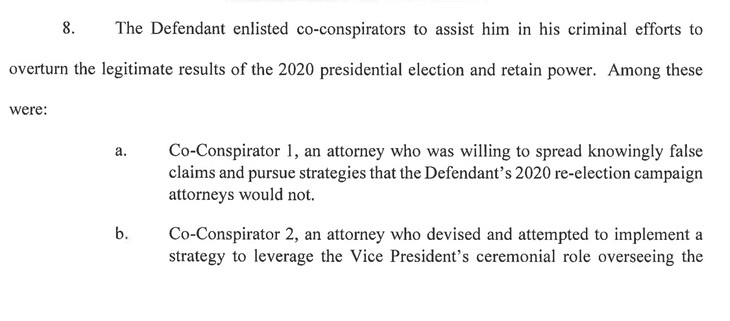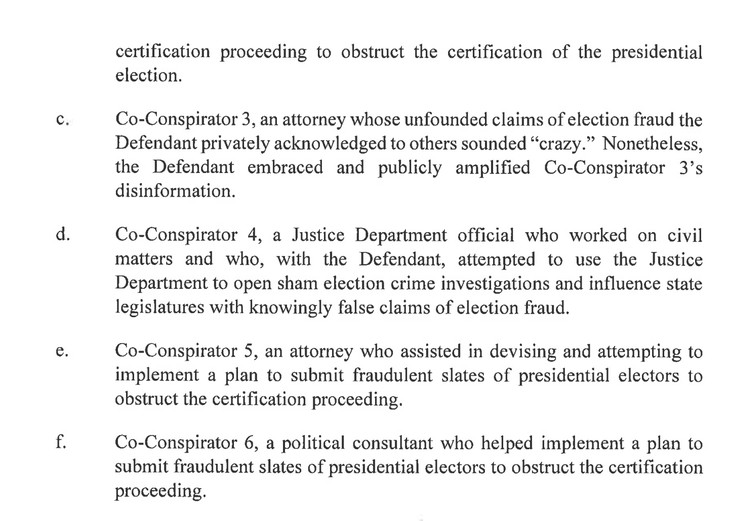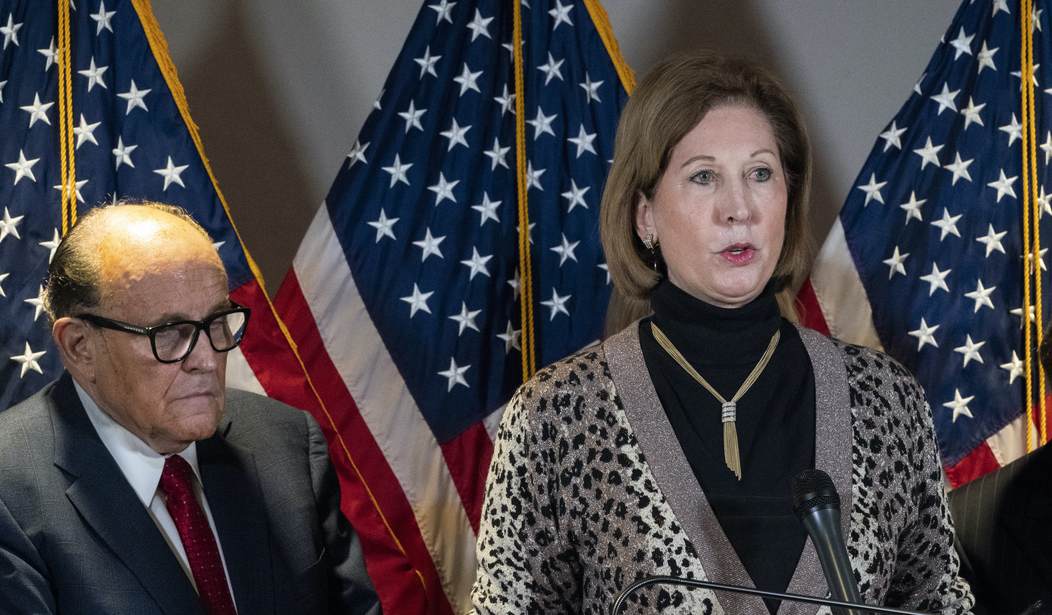Tuesday saw the start of another news cycle revolving around Donald Trump’s legal woes, and that’s likely to be the predominant theme of the 2024 election.
As RedState reported, DOJ-appointed special counsel Jack Smith dropped the indictment many on the left have been waiting for. It included four counts all related to January 6th and supposed attempts to overturn the election.
The first count, which is “conspiracy to defraud the United States or an agency thereof,” remains the most serious in terms of legal ramifications. A lot of that has to do with where this case is being tried and what judge has drawn the duties of overseeing it. The Washington, D.C. jury pool is made up of well over 90 percent registered Democrats while Judge Tanya Chutkan is clearly deeply invested in heavily punishing anyone even tacitly connected to January 6th.
So why is the first count the most concerning given the legal environment it will be prosecuted? It has to do with the “co-conspirators” who are technically not named in the indictment. We know who five of them are, though, and that gives us a window into what the DOJ’s primary case will be.
In order, here are the names that have been confirmed based on the descriptions of each co-conspirator in the indictment: Rudy Guiliani, John Eastman, Sidney Powell, Jeff Clark, and Kenneth Chesebro.
For clarity, here are those descriptions so you can see what they are accused of.


Count one centers on Donald Trump allegedly working with the people named above to defraud the United States or an “agency thereof.” The DOJ will argue that Congress qualifies under that description.
From there, Smith and his team will take two paths to attempt to prove their case, and both of them are mentioned among the alleged actions of the co-conspirators. Specifically, they are the attempts to get then-Vice President Mike Pence to overturn the certification of the election and the planning and pushing of the so-called “fake electors scheme.”
As I’ve said in my prior analysis of the indictment, counts three and four appear laughable to me as they presume to criminalize what the DOJ claims to be disinformation. Count one deals with direct actions taken, and that makes it much stickier to defend when you’ve got a judge who likely wants nothing more than to be the left-wing hero who sent Donald Trump to jail.
The other problem revolves around the evidence provided by those co-conspirators. Because they were so open in their private communications (which the DOJ now has) about their plans and their direct coordination with Trump, the DOJ is going to have an easier time proving intent to what will be an extremely friendly (and biased) D.C. jury.
This is where a lot of the responses to the indictment from right-wing influencers have missed the point. Some of the counts have serious free speech concerns, but not all of them rest on such considerations. Donald Trump, and by virtue of his lead in the primary, Republican voters, have a serious road ahead of them. We all have to operate in actual reality, not what we want reality to be. That means, for example, that one argument will need to center on proving the legality of organizing and submitting slates of alternate electors.
In other words, go read the relatively short indictment. Know what it’s claiming, and then arm yourself with the basic knowledge needed to push back effectively.















Join the conversation as a VIP Member